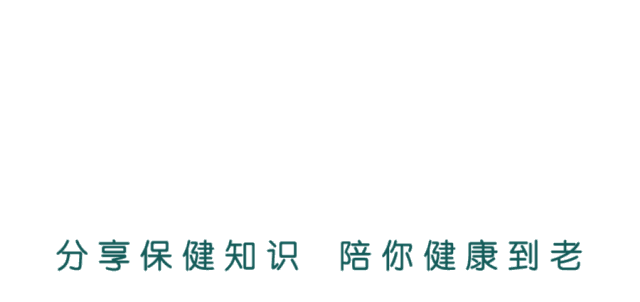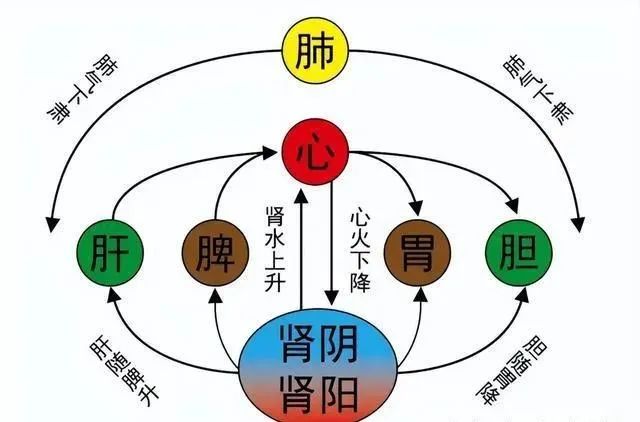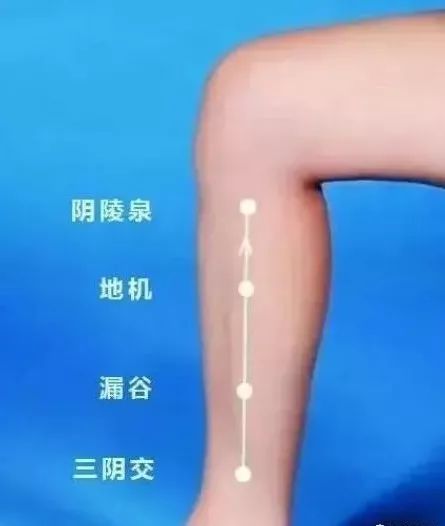

Due to environmental pollution, mental stress, and other factors, modern women are no longer like the ancient women who “never left the house.” Their bodies are often in a state of exhaustion, leading to irregular menstruation, premature ovarian failure, and rapid aging.True beauty always comes from within, so to become a goddess, it is essential to repair the body from the inside. Given the physiological characteristics of women, the focus should be on nourishing the liver (gan), spleen (pi), and kidney (shen).
Poor Liver Function Leads to Gynecological Issues Since ancient times, there has been a saying that “women rely on the liver, while men rely on the kidney,” indicating that women are fundamentally connected to the liver, while men are connected to the kidney. Here, the liver and kidney are defined from a TCM perspective.In Western medicine, the liver refers to the anatomical liver, while in TCM, the liver encompasses a broader concept. It is a functional system that includes not only the liver organ but also the neuroendocrine system involved in emotional regulation and digestive absorption. Therefore, the liver in TCM has two major functions: it governs the smooth flow of qi and blood and stores blood. Any dysfunction in these areas can lead to gynecological diseases.1. The Liver Governs the Smooth Flow of QiThe liver’s function of regulating the smooth flow of qi manifests in three main aspects: regulating emotions, promoting digestion and absorption, and maintaining the circulation of qi, blood, and body fluids.Regulating Emotions:The smooth flow of liver qi leads to a pleasant mood and sharp intellect; if liver qi is stagnant, it can cause depression, chest and rib discomfort, and endocrine disorders; if liver qi is excessive, it can lead to irritability, dizziness, and headaches.Promoting Digestion and Absorption:If the liver fails to regulate, it can affect the spleen and stomach’s ability to ascend and descend and the secretion of bile, leading to digestive issues such as poor appetite, indigestion, and abdominal bloating and diarrhea, known in TCM as liver-stomach disharmony or liver-spleen disharmony.Maintaining Circulation of Qi, Blood, and Body Fluids:If the liver fails to regulate, it can lead to qi stagnation and blood stasis, resulting in symptoms such as breast hyperplasia, uterine fibroids, and menstrual irregularities. The liver’s function also helps to regulate the san jiao (three burners) and the flow of body fluids; if the liver fails to regulate, it can sometimes lead to ascites and edema.In daily life, many people experience a sensation of something stuck in their throat after becoming very angry, as if they cannot swallow or spit it out. This is commonly referred to as plum pit qi. If this occurs frequently, it can lead to the development of thyroid nodules. After intense anger, stagnant liver qi can also cause chest and rib discomfort or pain; if this happens often, it can lead to breast hyperplasia, menstrual irregularities, dysmenorrhea, and uterine fibroids.2. The Liver Stores BloodThe liver has the function of storing blood and regulating blood volume. When liver blood is insufficient or cannot regulate blood volume, the uterus will lack warmth and nourishment, leading to diminished uterine function and coldness in the uterus. This coldness can be a major source of gynecological diseases, easily resulting in menstrual irregularities, premature ovarian failure, and infertility.Poor Spleen Function Leads to Qi and Blood DeficiencyIn TCM, the spleen encompasses not only the spleen organ but also all digestive functions of the body. The spleen is referred to as the “official of granaries”, meaning it governs the organs responsible for food processing.Medical texts state: the spleen belongs to the earth in the five elements, is associated with muscles and limbs, opens to the mouth, and its manifestation is in the lips. It governs fluids as saliva; the spleen stores intention and is associated with thought. The spleen’s physiological functions mainly include transportation and transformation, lifting, and regulating blood, with transportation being the core function, hence it is called the “foundation of postnatal life” and “source of qi and blood”.In simpler terms: the spleen is the source of qi and blood; the quality of qi and blood directly affects complexion.If the spleen is weak, qi and blood production will be insufficient, leading to pale complexion, pale lips, and drooling;If the spleen is weak, it cannot regulate blood, leading to sagging skin, breast ptosis, gastric ptosis, uterine prolapse, and rectal prolapse;If the spleen is weak, it fails to transform and transport dampness, leading to bags under the eyes, limb swelling, and overall body bloating.Qi and blood deficiency caused by spleen weakness can also lead to severe consequences: infertility or fetal stagnation, death, or miscarriage. Because the spleen belongs to the earth in the five elements, it has the virtue of the earth, capable of generating all things. As Fu Qingzhu stated: “If the spleen and stomach qi is deficient, the uterus will be weak, and there will be a risk of miscarriage.” His formulas particularly emphasize the regulation of the spleen and stomach for pregnant women.The above two paragraphs clearly explain the functions of the spleen, the conditions caused by spleen deficiency, and how to tonify the spleen. It is recommended that women avoid excessive worrying, as the spleen governs thought, and the spleen has a significant relationship with emotions. If women worry too much, it will certainly lead to spleen qi deficiency, resulting in the aforementioned symptoms.Poor Kidney Function Leads to Premature AgingThe famous “Tian Gui Lun” in the Huangdi Neijing mentions “kidney qi” in the first sentence: “At seven years old, a girl has abundant kidney qi, and her teeth and hair grow,” directly indicating the relationship between kidney qi and the growth, development, and aging of the body.If kidney function is poor, kidney qi and essence will be insufficient, leading to various symptoms; even the most beautiful face cannot withstand the toll:1. Irritability and InsomniaInsufficient kidney essence can lead to insomnia due to the heart-kidney disharmony. Only when the heart and kidney interact can water and fire be balanced, allowing for harmony of yin and yang in the body. Insufficient kidney essence leads to insufficient kidney water rising and excessive heart fire, causing water deficiency below and fire excess above, resulting in the heart and kidney failing to interact, leading to insomnia.2. Irregular MenstruationThe Ren Meridian is known as the “sea of yin meridians,” governing the uterus and pregnancy, while the Chong Meridian is known as the “sea of twelve meridians,” governing menstruation and fertility. The Ren and Chong meridians originate in the uterus and are connected to the kidneys; when kidney essence is sufficient, the Ren and Chong meridians are abundant, leading to normal menstruation; conversely, insufficient kidney essence leads to irregular menstruation.3. Weakness in the Lower Back and KneesThe kidneys govern the bones, and the kidneys store the essence transmitted from the five organs and six bowels, nourishing and filling the bones. Insufficient kidney essence leads to weakness in the lower back and knees.4. Hair Loss and GrayingThe kidneys store essence, and its manifestation is in the hair. When kidney essence is sufficient, hair is thick, shiny, and soft. Conversely, insufficient nourishment leads to hair loss and graying.5. Memory DeclineThe kidneys govern the bones and produce marrow that connects to the brain. Insufficient kidney essence can lead to memory decline and forgetfulness.The above symptoms are common manifestations of poor kidney function, but these are just a few examples; there are many more symptoms associated with poor kidney function.In TCM, among the many causes of aging, “kidney deficiency” is particularly emphasized, as it is believed that severe kidney deficiency significantly lowers a woman’s beauty and image.According to normal physiology, women generally experience “the cessation of Tian Gui and the closing of the earth passage” around the age of 49, at which point kidney qi declines, and menstruation stops. Women in this age group typically enter menopause and particularly need to tonify the kidneys; otherwise, their appearance will age rapidly.Gua Sha Therapy: A Line to Harmonize the Liver, Spleen, and KidneyFrom the above, we can conclude that to stay away from gynecological issues, maintain abundant qi and blood, and prevent premature aging, the liver, spleen, and kidney must all be healthy; none can be neglected. Moreover, considering the close relationship between the liver, spleen, and kidney, it is recommended to adjust them simultaneously; otherwise, focusing on one may lead to neglecting the others, significantly reducing effectiveness.So, how can we harmonize them? It’s simple: through Gua Sha, by scraping this line as shown in the image below:
Since ancient times, there has been a saying that “women rely on the liver, while men rely on the kidney,” indicating that women are fundamentally connected to the liver, while men are connected to the kidney. Here, the liver and kidney are defined from a TCM perspective.In Western medicine, the liver refers to the anatomical liver, while in TCM, the liver encompasses a broader concept. It is a functional system that includes not only the liver organ but also the neuroendocrine system involved in emotional regulation and digestive absorption. Therefore, the liver in TCM has two major functions: it governs the smooth flow of qi and blood and stores blood. Any dysfunction in these areas can lead to gynecological diseases.1. The Liver Governs the Smooth Flow of QiThe liver’s function of regulating the smooth flow of qi manifests in three main aspects: regulating emotions, promoting digestion and absorption, and maintaining the circulation of qi, blood, and body fluids.Regulating Emotions:The smooth flow of liver qi leads to a pleasant mood and sharp intellect; if liver qi is stagnant, it can cause depression, chest and rib discomfort, and endocrine disorders; if liver qi is excessive, it can lead to irritability, dizziness, and headaches.Promoting Digestion and Absorption:If the liver fails to regulate, it can affect the spleen and stomach’s ability to ascend and descend and the secretion of bile, leading to digestive issues such as poor appetite, indigestion, and abdominal bloating and diarrhea, known in TCM as liver-stomach disharmony or liver-spleen disharmony.Maintaining Circulation of Qi, Blood, and Body Fluids:If the liver fails to regulate, it can lead to qi stagnation and blood stasis, resulting in symptoms such as breast hyperplasia, uterine fibroids, and menstrual irregularities. The liver’s function also helps to regulate the san jiao (three burners) and the flow of body fluids; if the liver fails to regulate, it can sometimes lead to ascites and edema.In daily life, many people experience a sensation of something stuck in their throat after becoming very angry, as if they cannot swallow or spit it out. This is commonly referred to as plum pit qi. If this occurs frequently, it can lead to the development of thyroid nodules. After intense anger, stagnant liver qi can also cause chest and rib discomfort or pain; if this happens often, it can lead to breast hyperplasia, menstrual irregularities, dysmenorrhea, and uterine fibroids.2. The Liver Stores BloodThe liver has the function of storing blood and regulating blood volume. When liver blood is insufficient or cannot regulate blood volume, the uterus will lack warmth and nourishment, leading to diminished uterine function and coldness in the uterus. This coldness can be a major source of gynecological diseases, easily resulting in menstrual irregularities, premature ovarian failure, and infertility.Poor Spleen Function Leads to Qi and Blood DeficiencyIn TCM, the spleen encompasses not only the spleen organ but also all digestive functions of the body. The spleen is referred to as the “official of granaries”, meaning it governs the organs responsible for food processing.Medical texts state: the spleen belongs to the earth in the five elements, is associated with muscles and limbs, opens to the mouth, and its manifestation is in the lips. It governs fluids as saliva; the spleen stores intention and is associated with thought. The spleen’s physiological functions mainly include transportation and transformation, lifting, and regulating blood, with transportation being the core function, hence it is called the “foundation of postnatal life” and “source of qi and blood”.In simpler terms: the spleen is the source of qi and blood; the quality of qi and blood directly affects complexion.If the spleen is weak, qi and blood production will be insufficient, leading to pale complexion, pale lips, and drooling;If the spleen is weak, it cannot regulate blood, leading to sagging skin, breast ptosis, gastric ptosis, uterine prolapse, and rectal prolapse;If the spleen is weak, it fails to transform and transport dampness, leading to bags under the eyes, limb swelling, and overall body bloating.Qi and blood deficiency caused by spleen weakness can also lead to severe consequences: infertility or fetal stagnation, death, or miscarriage. Because the spleen belongs to the earth in the five elements, it has the virtue of the earth, capable of generating all things. As Fu Qingzhu stated: “If the spleen and stomach qi is deficient, the uterus will be weak, and there will be a risk of miscarriage.” His formulas particularly emphasize the regulation of the spleen and stomach for pregnant women.The above two paragraphs clearly explain the functions of the spleen, the conditions caused by spleen deficiency, and how to tonify the spleen. It is recommended that women avoid excessive worrying, as the spleen governs thought, and the spleen has a significant relationship with emotions. If women worry too much, it will certainly lead to spleen qi deficiency, resulting in the aforementioned symptoms.Poor Kidney Function Leads to Premature AgingThe famous “Tian Gui Lun” in the Huangdi Neijing mentions “kidney qi” in the first sentence: “At seven years old, a girl has abundant kidney qi, and her teeth and hair grow,” directly indicating the relationship between kidney qi and the growth, development, and aging of the body.If kidney function is poor, kidney qi and essence will be insufficient, leading to various symptoms; even the most beautiful face cannot withstand the toll:1. Irritability and InsomniaInsufficient kidney essence can lead to insomnia due to the heart-kidney disharmony. Only when the heart and kidney interact can water and fire be balanced, allowing for harmony of yin and yang in the body. Insufficient kidney essence leads to insufficient kidney water rising and excessive heart fire, causing water deficiency below and fire excess above, resulting in the heart and kidney failing to interact, leading to insomnia.2. Irregular MenstruationThe Ren Meridian is known as the “sea of yin meridians,” governing the uterus and pregnancy, while the Chong Meridian is known as the “sea of twelve meridians,” governing menstruation and fertility. The Ren and Chong meridians originate in the uterus and are connected to the kidneys; when kidney essence is sufficient, the Ren and Chong meridians are abundant, leading to normal menstruation; conversely, insufficient kidney essence leads to irregular menstruation.3. Weakness in the Lower Back and KneesThe kidneys govern the bones, and the kidneys store the essence transmitted from the five organs and six bowels, nourishing and filling the bones. Insufficient kidney essence leads to weakness in the lower back and knees.4. Hair Loss and GrayingThe kidneys store essence, and its manifestation is in the hair. When kidney essence is sufficient, hair is thick, shiny, and soft. Conversely, insufficient nourishment leads to hair loss and graying.5. Memory DeclineThe kidneys govern the bones and produce marrow that connects to the brain. Insufficient kidney essence can lead to memory decline and forgetfulness.The above symptoms are common manifestations of poor kidney function, but these are just a few examples; there are many more symptoms associated with poor kidney function.In TCM, among the many causes of aging, “kidney deficiency” is particularly emphasized, as it is believed that severe kidney deficiency significantly lowers a woman’s beauty and image.According to normal physiology, women generally experience “the cessation of Tian Gui and the closing of the earth passage” around the age of 49, at which point kidney qi declines, and menstruation stops. Women in this age group typically enter menopause and particularly need to tonify the kidneys; otherwise, their appearance will age rapidly.Gua Sha Therapy: A Line to Harmonize the Liver, Spleen, and KidneyFrom the above, we can conclude that to stay away from gynecological issues, maintain abundant qi and blood, and prevent premature aging, the liver, spleen, and kidney must all be healthy; none can be neglected. Moreover, considering the close relationship between the liver, spleen, and kidney, it is recommended to adjust them simultaneously; otherwise, focusing on one may lead to neglecting the others, significantly reducing effectiveness.So, how can we harmonize them? It’s simple: through Gua Sha, by scraping this line as shown in the image below: In TCM, any treatment method cannot be separated from regulating qi and blood. The more abundant the qi and blood, the easier it is to treat; the weaker the qi and blood, the harder it is to recover. If qi and blood are weak to the extreme, no matter how skilled the physician, they cannot help. The line on the calf can easily activate qi and blood, harmonizing the liver, spleen, and kidney.The four acupoints along this line are all significant:Yin Ling Quan:Drains dampness from the spleen and dispels damp-heat.Di Ji:Strengthens the spleen, drains dampness, regulates menstruation, and stops leukorrhea. Di Ji is adept at regulating blood and can be used for menstrual irregularities and other gynecological diseases. Generally, pressing Di Ji will cause discomfort in cases of irregular menstruation or gynecological issues.Lou Gu:Heavy substances in the spleen channel settle here; pressing this point may cause tenderness if the spleen and stomach are weak. Lou Gu is particularly effective in dispelling dampness, strengthening the spleen, regulating qi, and promoting urination.
In TCM, any treatment method cannot be separated from regulating qi and blood. The more abundant the qi and blood, the easier it is to treat; the weaker the qi and blood, the harder it is to recover. If qi and blood are weak to the extreme, no matter how skilled the physician, they cannot help. The line on the calf can easily activate qi and blood, harmonizing the liver, spleen, and kidney.The four acupoints along this line are all significant:Yin Ling Quan:Drains dampness from the spleen and dispels damp-heat.Di Ji:Strengthens the spleen, drains dampness, regulates menstruation, and stops leukorrhea. Di Ji is adept at regulating blood and can be used for menstrual irregularities and other gynecological diseases. Generally, pressing Di Ji will cause discomfort in cases of irregular menstruation or gynecological issues.Lou Gu:Heavy substances in the spleen channel settle here; pressing this point may cause tenderness if the spleen and stomach are weak. Lou Gu is particularly effective in dispelling dampness, strengthening the spleen, regulating qi, and promoting urination.
San Yin Jiao:The renowned “first point for gynecology,” this is the intersection of the liver, spleen, and kidney meridians, which every woman should know.
Warm Reminder:This platform shares health-related graphic information for reference and learning purposes only and does not serve as a basis for medical diagnosis. If needed, please consult a physician for guidance.


